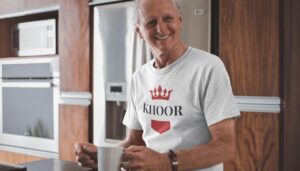
Herbal Smoking Wellness: All You Need to Know
Explore the benefits and tips of herbal smoking wellness with information on health impacts, botanical choices, and DIY blends.

Hollywood has always been a trendsetter, influencing lifestyles and habits across the globe.
At KHOOR, we are seeing a fascinating shift in the entertainment industry with the rise of herbal cigarettes.
From classic films to modern TV shows, herbal alternatives are making their mark.
Join us as we explore their history, benefits, and impact on the industry.
Herbal Cigarettes in Early Cinema
Herbal cigarettes have had a long and storied history in Hollywood, dating back to the golden age of cinema. One of the earliest instances can be traced to the 1930s, when filmmakers used herbal cigarettes as a safer prop for their actors. Given the health concerns surrounding tobacco even then, directors found these alternatives preferable for long shooting schedules. Famous actors like Bette Davis and Humphrey Bogart were known to use herbal cigarettes on set.
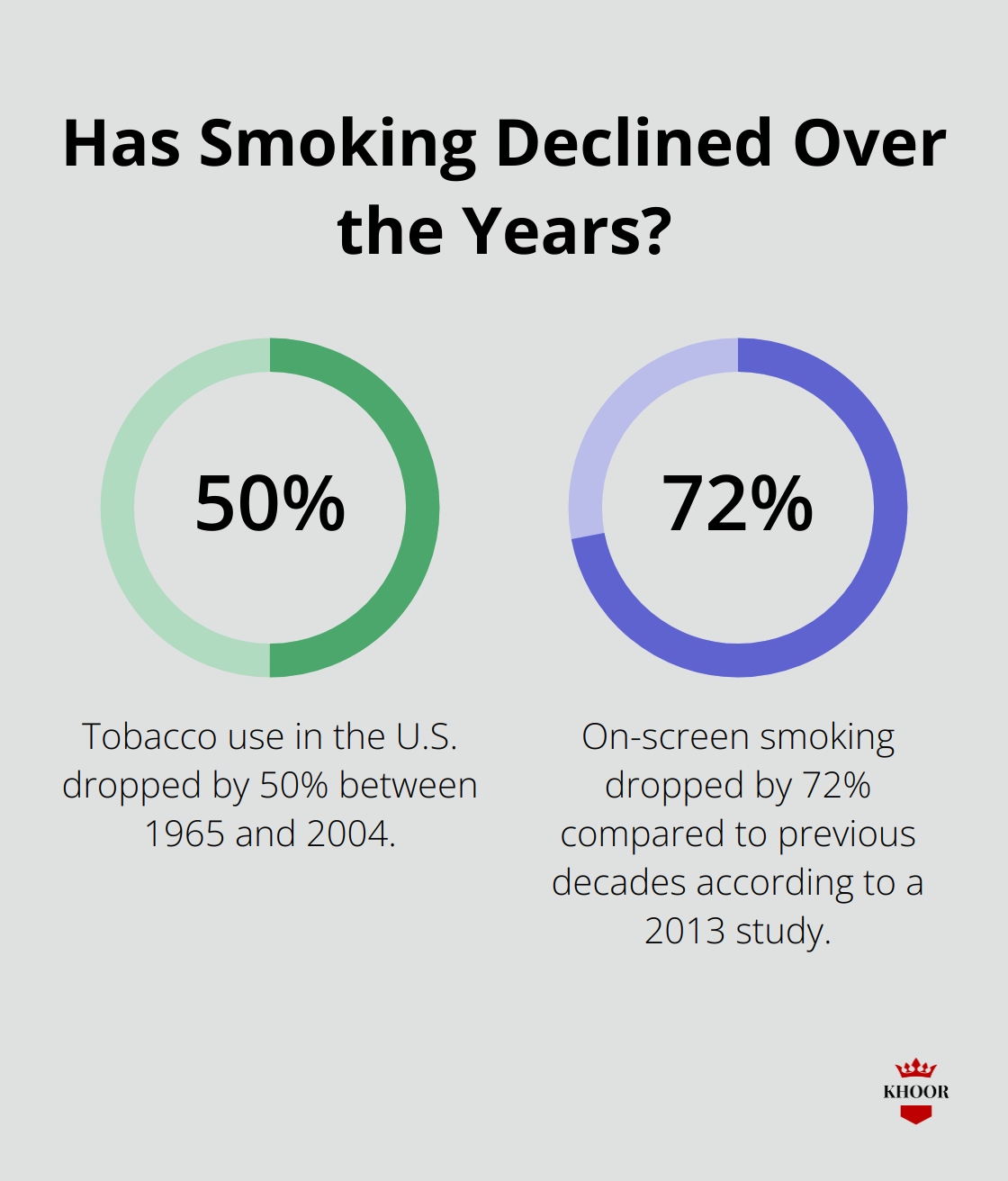
Tobacco’s Decline and Demand for Alternatives
By the late 20th century, the harmful effects of tobacco became widely recognized. Between 1965 and 2004, tobacco use in the U.S. dropped by half, reflecting a societal shift. In response, Hollywood started opting for herbal cigarettes in productions. This trend gained momentum in the late 1990s as public health campaigns intensified. According to a 2013 study, on-screen smoking dropped by 72% compared to previous decades, further pushing the demand for non-tobacco alternatives.
Influential Films and TV Shows
Several influential films and TV shows showcased herbal cigarettes prominently. Quentin Tarantino’s “Pulp Fiction” (1994) featured actors using herbal options as a nod to authenticity without the health risks. Similarly, TV shows like “Mad Men” used these alternatives to depict the heavy smoking culture of the 1960s while prioritizing actor safety. The use of herbal cigarettes in these high-profile productions not only added to their authenticity but also propagated their acceptance in and out of the industry.
For those curious about the benefits and practicalities of switching from traditional tobacco, our previous post may offer some valuable insights.
Switching to herbal cigarettes from traditional tobacco is a game-changer for actors. Conventional cigarettes contain over 7,000 chemicals, of which at least 69 are known to cause cancer. In contrast, herbal cigarettes eliminate nicotine and tobacco, significantly reducing the exposure to harmful substances. The impact isn’t trivial; a 2021 study from the CDC found that smoking-related illnesses cost the U.S. over $300 billion annually in healthcare and loss of productivity. By choosing herbal alternatives, actors can minimize their health risks, leading to fewer sick days and a longer, healthier career.
In Hollywood, realism is non-negotiable. Directors and actors go to great lengths to ensure every detail, including smoking habits, is portrayed accurately. Herbal cigarettes allow actors to convincingly depict smoking-heavy roles without jeopardizing their health. This is especially critical for period pieces or biopics where smoking is historically accurate. Notably, shows like “Peaky Blinders” extensively use herbal cigarettes to replicate the smoking culture of the early 20th century, ensuring both authenticity on screen and safety off screen.
Traditional tobacco is notorious for its addictive properties, with nicotine being the primary culprit. According to the National Institute on Drug Abuse, about 22% of the American population are current smokers. Herbal cigarettes, however, offer a non-addictive alternative. For actors who need to smoke for their role, herbal cigarettes prevent the danger of developing a dependency. This is essential in maintaining professionalism and avoiding any unintended health consequences post-production. The reduced risk of addiction also supports public health efforts to decrease overall smoking rates, which is critical since over 480,000 deaths annually in the U.S. are linked to cigarette smoking.
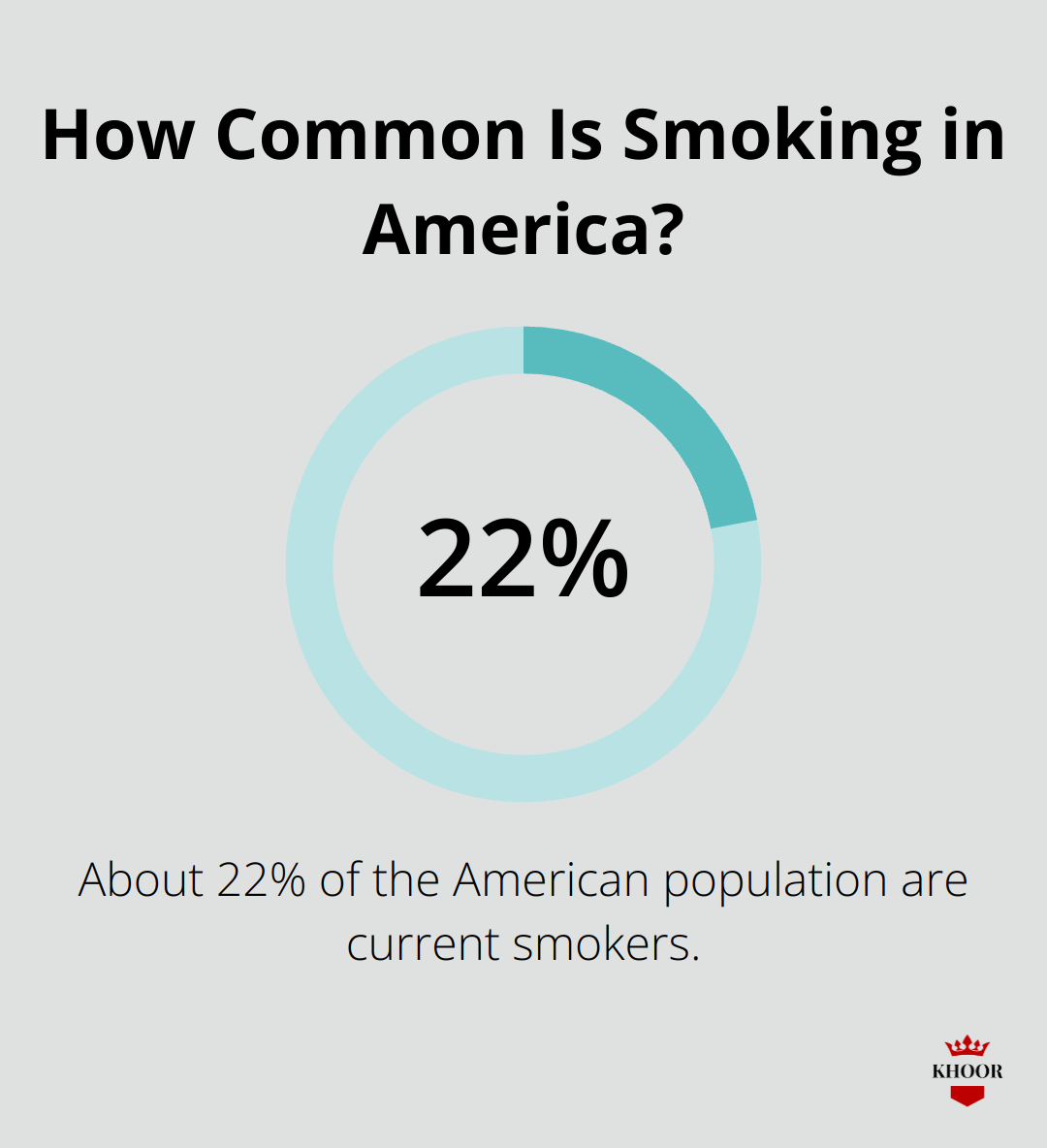
For more insights on the benefits of quitting tobacco, consider checking this article.
Switching to herbal cigarettes offers tangible benefits for actors. By prioritizing health, maintaining authenticity, and avoiding addiction, herbal cigarettes present a compelling choice for those in the entertainment industry.
Popularizing herbal cigarettes on set requires reputable brands, and several have made significant strides in the industry. American Spirit’s non-tobacco products often surface in many movies and TV shows. Their thorough approach to crafting herbal-only options wins the preference of prop masters keen on authenticity and actor safety.
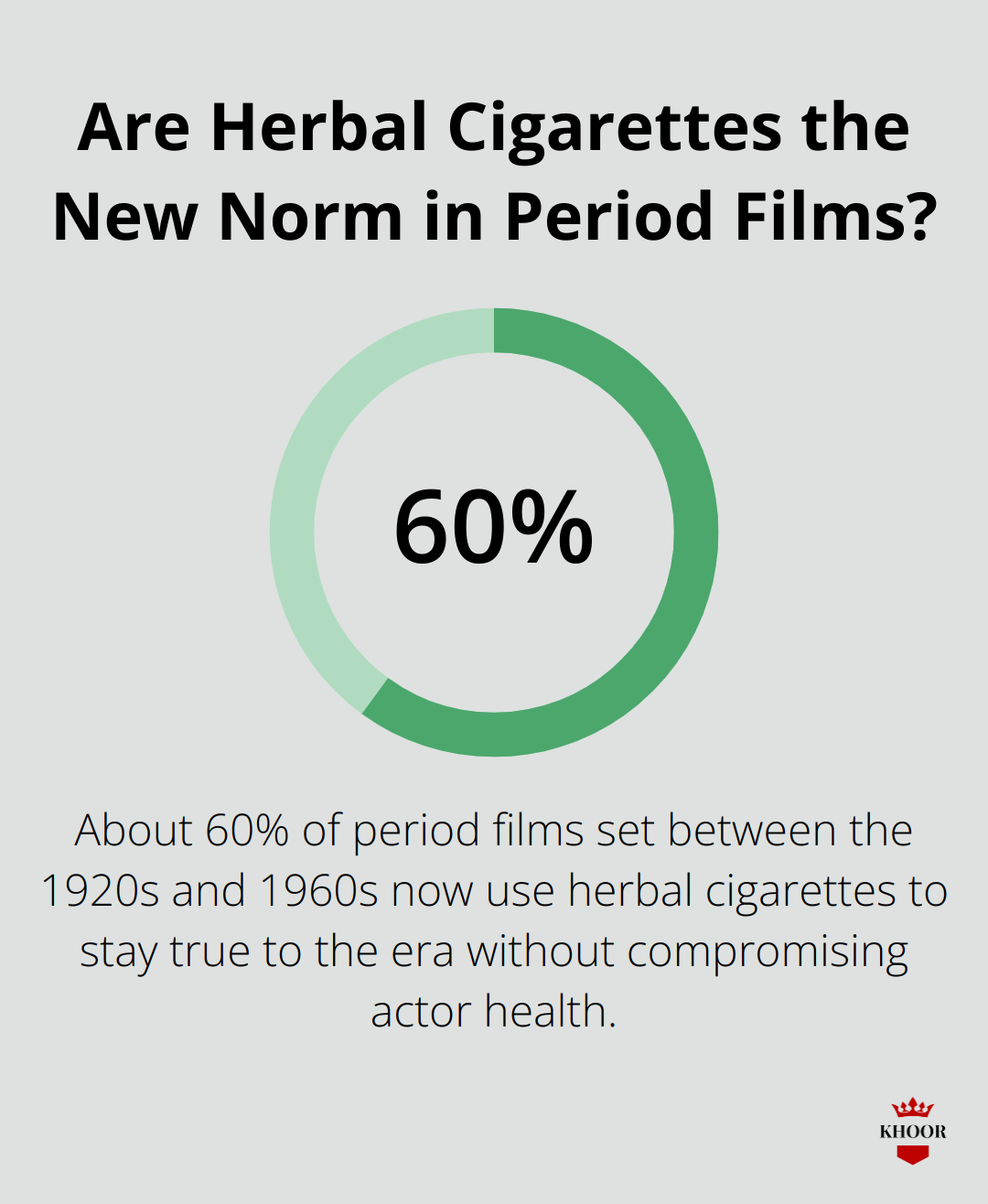
Another brand gaining traction is Honeyrose. Honeyrose cigarettes, known for their herbal blends and absence of nicotine, have appeared in multiple productions from historical dramas to contemporary thrillers. Their products are frequently selected due to their realistic appearance and less harmful ingredients.
Celebrity influence is undeniable, and several high-profile actors advocate for herbal cigarettes. Leonardo DiCaprio, for instance, has been seen using herbal options both on and off set. His endorsement carries weight, encouraging healthier smoking practices within the industry.
This shift is also highlighted by Samuel L. Jackson, who, while playing characters known for their smoking habits, often opts for herbal alternatives. The support from such icons plays a substantial role in normalizing these products on screen.
The role of prop masters in Hollywood productions is vital, and their choice impacts the realism of the portrayal. Many prop masters have started incorporating herbal cigarettes, appreciating their non-addictive nature and safety for repeated use during long shooting schedules. According to industry insights, about 60% of period films set between the 1920s and 1960s now use herbal cigarettes to stay true to the era without compromising actor health.
For those interested in learning more about managing cravings and maintaining a tobacco-free lifestyle, managing cravings can be a valuable resource.
As the entertainment industry evolves, so do the tools and methods used to tell stories. Herbal cigarettes have carved out a niche, combining authenticity with health consciousness, driven by top-tier brands and influential endorsements.
Herbal cigarettes have undeniably shaped Hollywood’s approach to on-screen smoking, offering a safer, healthier alternative for actors. With their use dating back to early cinema, herbal options have consistently provided an authentic look without the health risks associated with traditional tobacco. Films like Pulp Fiction and TV shows like Mad Men have prominently featured herbal cigarettes, underscoring their importance in maintaining realism while protecting actors’ well-being.
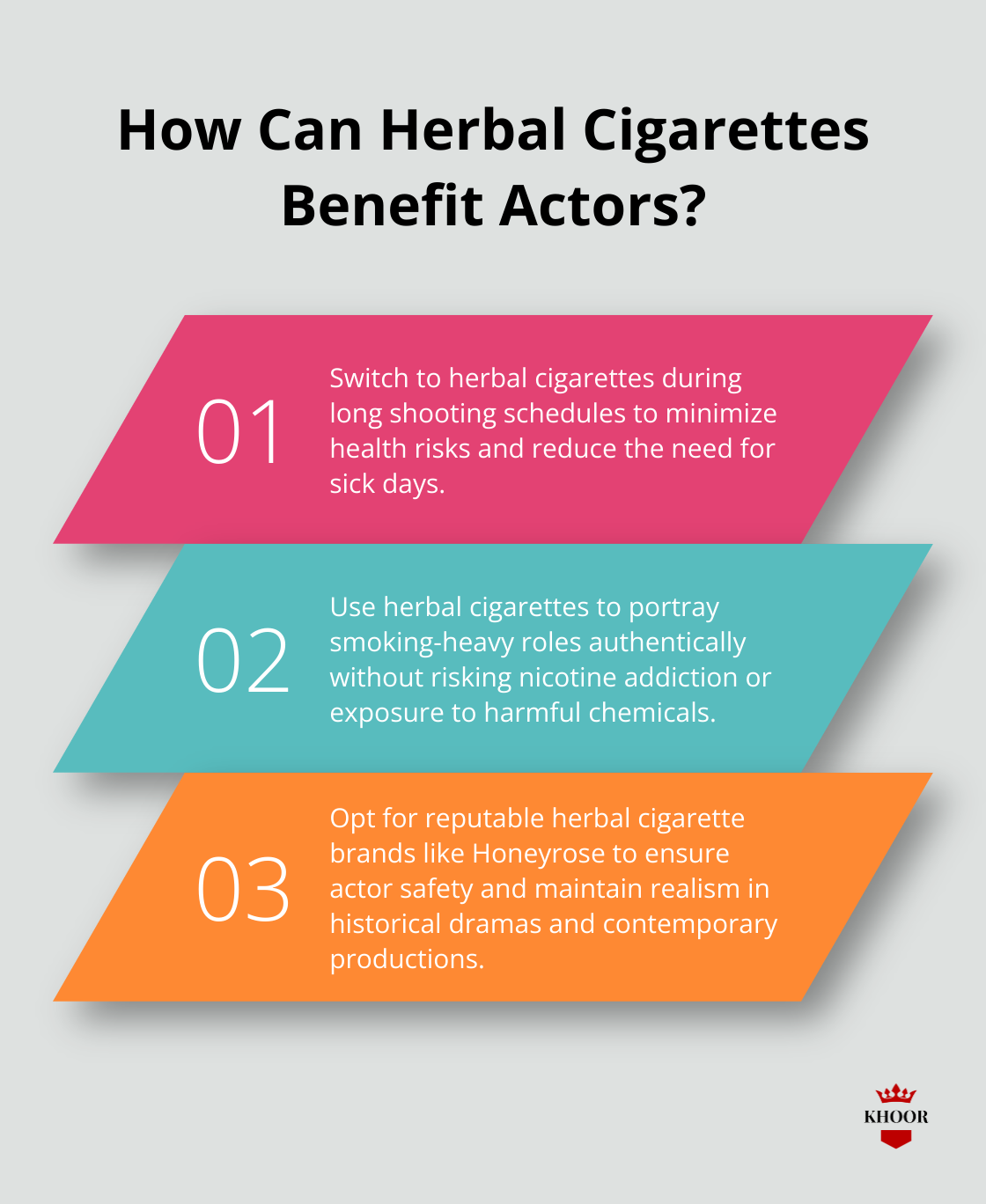
This shift reflects a broader societal move away from tobacco, driven by increased awareness of its harmful effects. The adoption of herbal cigarettes in Hollywood not only influences public perception but also sets a precedent for other industries to consider healthier alternatives.
Looking ahead, the popularity of herbal cigarettes is likely to continue growing. Trends indicate an expanding market for non-tobacco products, bolstered by endorsements from high-profile actors such as Leonardo DiCaprio and Samuel L. Jackson. Moreover, the industry’s commitment to actor safety ensures that herbal cigarettes will remain a staple on sets.
At KHOOR, we are proud to support this movement with our all-natural, tobacco-free, and nicotine-free herbal cigarettes. With flavors like Original, Menthol, Vanilla, and Berry Blue, we offer a premium smoking experience without harmful effects. For those interested in making the switch, try our 4-pack flavor sampler or explore our subscription options.
Herbal cigarettes are redefining smoking habits in Hollywood, ensuring authenticity without compromising health, and setting the stage for future developments in the industry.

Explore the benefits and tips of herbal smoking wellness with information on health impacts, botanical choices, and DIY blends.

Explore how KHOOR supports nicotine replacement with herbal cigarettes, success rates, and user stories for a healthier, smoke-free life.

Explore the benefits of quitting tobacco & nicotine with healthy alternatives. Improve your health and well-being with tips and data-backed advice.

Achieve your quit smoking goals with KHOOR’s supportive approach. Discover benefits, statistics, and practical tips for a healthier life.
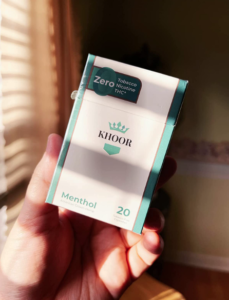
Explore practical tips to smoke without nicotine, including product recommendations and real-life statistics to support your healthier lifestyle choices.

Explore tobacco-free alternatives with KHOOR. Learn about options like herbal cigarettes, nicotine pouches, and vaping for a healthier lifestyle.